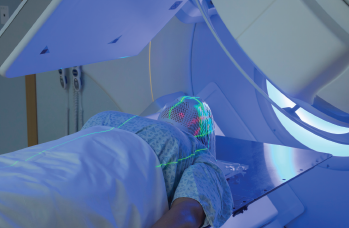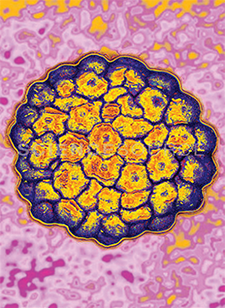A liquid biopsy-based test to diagnose HPV-associated cancers may offer improved accuracy at a reduced cost and with a shorter time to diagnosis.


A liquid biopsy-based test to diagnose HPV-associated cancers may offer improved accuracy at a reduced cost and with a shorter time to diagnosis.
The interaction between tobacco exposure and HPV infection in the context of OPSCC has significant implications for standard of care treatment regimens.

Radiation therapy has a host of drawbacks, including long-term side effects and even treatment-related morbidity in some cases.
Analysis of tumor type HPV DNA has considerable promise as a biomarker for treatment response and risk of progression.

The contralateral tonsil should routinely be removed in cases of suspected or known unilateral HPV+ TSCC.

Patients in both the general (noncancer) and HPV-OPC populations may enquire whether they should avoid open-mouth kissing to prevent either acquiring or transmitting oral HPV infection.
However, there was no significantly different incidence of CBNM between HPV-positive and HPV-negative patients

De-intensifying both surgical and radiation treatment can be effective in some patients

Researchers propose a new staging system for human papillomavirus-related oropharyngeal cancers based on findings from the International Collaboration on Oropharyngeal cancer Network for Staging (ICON-S) study.

The possibility of de-escalating treatment is being evaluated in a clinical trial of participants with HPV-positive stage III-IVA oropharyngeal cancer